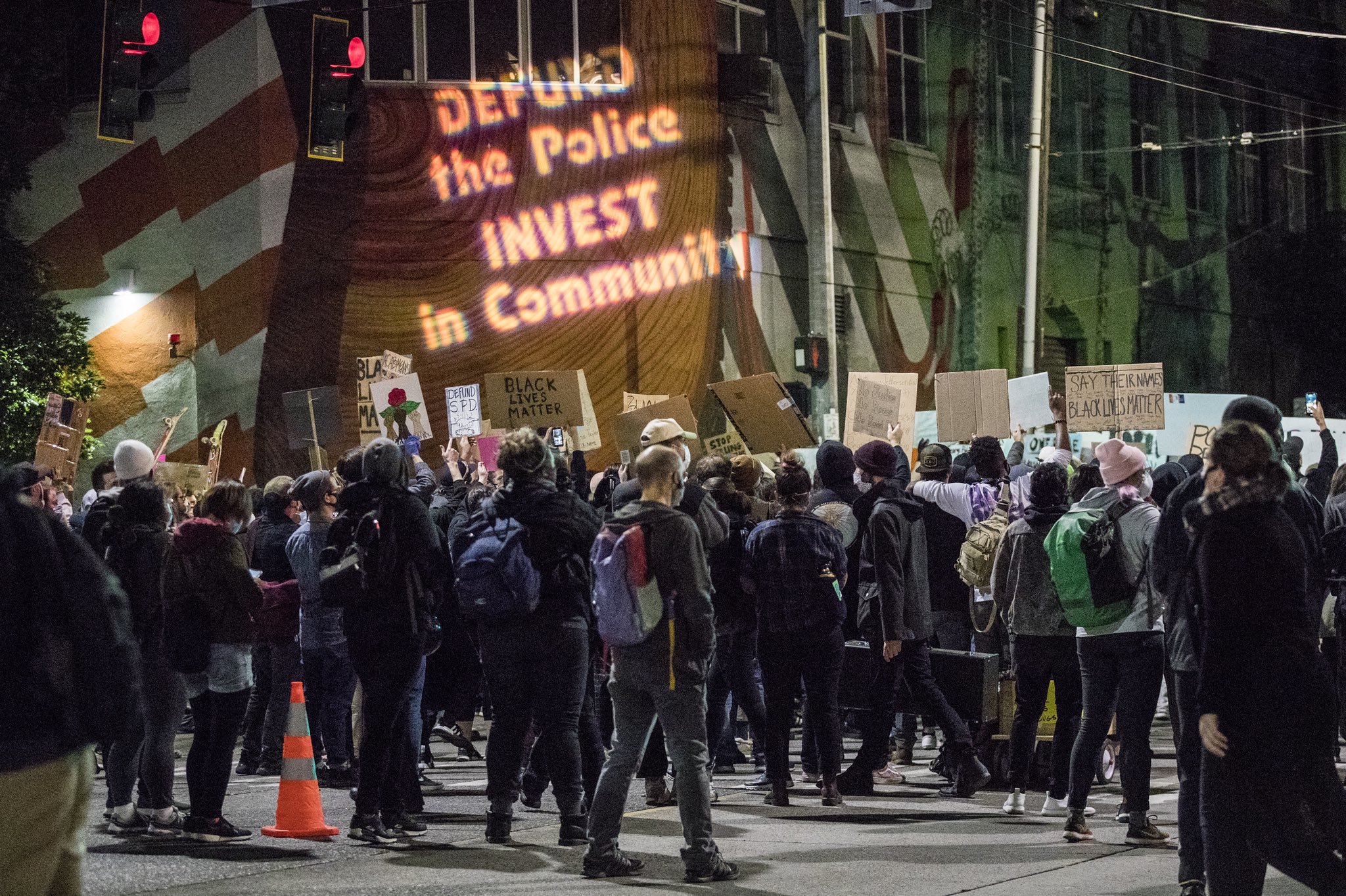Defunding the police doesn’t necessarily mean abolishing them. It’s altogether more useful and appropriate: investing in real solutions.
This is a time of reckoning. In recent days, seemingly bedrock elements of American culture have come under scrutiny and been found wanting. The one-two punch of COVID-19 and the protests surrounding George Floyd’s death at the hands of police leave many feeling that if we don’t grab this opportunity to solve some deeply entrenched systemic problems, we may never have the chance again. As tarnished old statues “trip and fall” off of their pedestals, so too are dusty cultural memes coming down around us. Two months ago, the notion of defunding the police would have been written off as extreme. Now the idea is working its way into mainstream thought, but what does it really entail?
The first and most obvious assumption would be that defunding the police means sending the forces of law and order home and opening the floodgate to crime and chaos. That’s the message President Trump wants us to take away. At a White House meeting with law enforcement leaders earlier this month, Trump reassured them that “there won’t be defunding. There won’t be dismantling of our police, and there’s not going to be any disbanding of our police. Our police have been letting us live in peace..”
The President, who isn’t even as good at funding police departments as the Democrats are, clearly lacks both honesty and imagination.
There’s more to defunding the police than erasing the thin blue line. After years of undermining the safety net, we now spend twice as much on law enforcement and the prison industry to take “care” of the problems caused by poverty and rampant inequality as we do on “welfare.” Punishment-based social policy may satisfy the moral cravings of the authoritarians among us, but it isn’t fixing the problems, is it? Instead, advocates for change argue that better outcomes would stem from correctly diagnosing and treating the root causes of our social problems. Diverting funds to more effective agencies and responses, rather than deploying armed force in every situation, is the inspiration behind the defunding movement.
What would that look like? Here are some real-life examples.
Instead of having police deal with non-crime emergencies, send mental health professionals instead. Cities like Oakland, CA, and Eugene, OR, found that it’s not only more compassionate, but also cheaper, to have counselors and medics approach people who may be intoxicated, disoriented, or homeless.

In 2012, Camden, NJ, then considered America’s most dangerous city, disbanded a police department so corrupt, they had to pay $3.5 million to innocent people whose convictions were subsequently overturned. Instead, Camden created a community-based organization instead, at less than half the cost per officer, that focused on de-escalation. The savings were invested in educational and workplace initiatives, cleaning up blight, and building community. Over the next seven years, violent crime dropped by 42%.
Police forces may feel like they’re called up for too many unnecessary reasons, too. In 2016, Dallas Police Chief David Brown complained, “Every societal failure, we put it off on the cops to solve. Not enough mental health funding, let the cops handle it… Here in Dallas we got a loose dog problem; let’s have the cops chase loose dogs. Schools fail, let’s give it to the cops… That’s too much to ask. Policing was never meant to solve all those problems.” George Floyd would likely be alive today if someone other than the police arrived to deal with the suspicious $20 bill he was accused of trying to pass. Even if he was guilty, counterfeiting is not a capital crime.
That’s why cities like Minneapolis, New York, San Francisco, Los Angeles, and Denver are defunding the police to some degree, and diverting those resources into other initiatives better suited to keeping the public safe.
Yes, the phrasing could be better. “Defunding the police” doesn’t necessarily mean abolishing the police, although that’s an easy and forgivable mental leap to make. However, it’s catchier than “let’s massively restructure the way we spend public dollars to encourage peaceful, appropriate, and effective solutions to nonviolent and noncriminal social problems, rather than relying on potentially deadly and often life-ruining encounters with law enforcement to do jobs beyond the scope of their training and personal inclination.” And it’s certainly a lot more specific and measurable than “Make America Great Again.”
Related: No Police, No Peace? Maybe Not


Join the conversation!